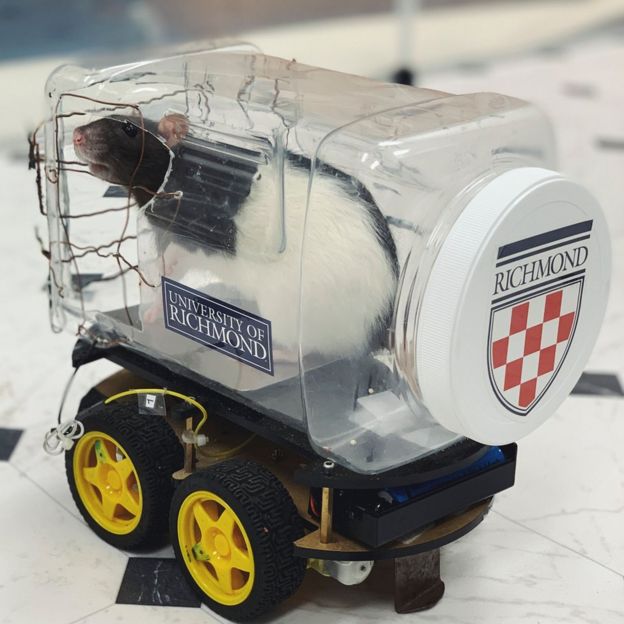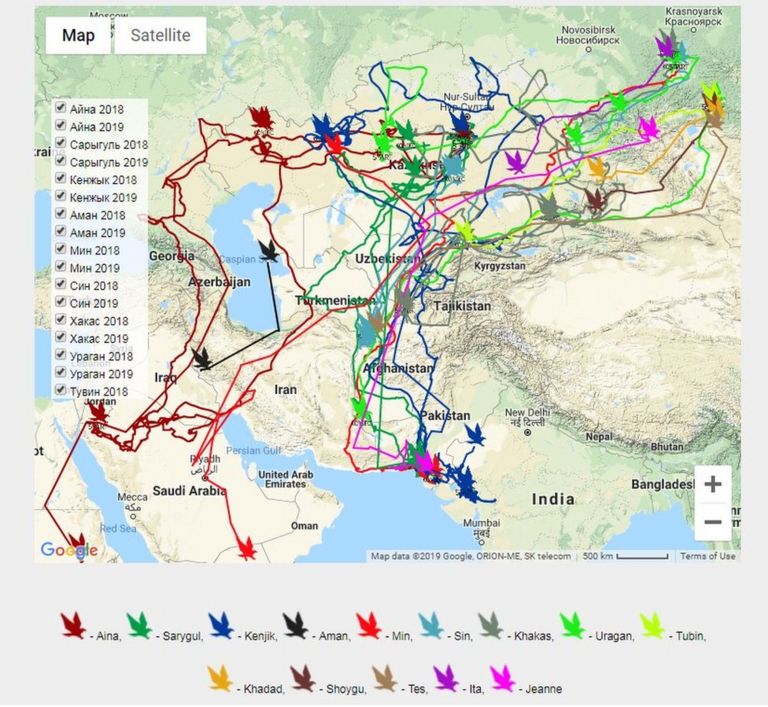This is a robbery! I'll have a cheeseburger too.
https://www.msn.com/en-gb/money/oth...ould-open-the-till/ar-AAIvdG6?ocid=spartanntp
https://www.msn.com/en-gb/money/oth...ould-open-the-till/ar-AAIvdG6?ocid=spartanntp
https://www.bbc.com/news/world-europe-49871448BBC said:Limerick student tricks scammer to give him money
A student from County Kilkenny in the Republic of Ireland has managed to scam money out of an internet scammer.
The scammer transferred £25 to the student's account, which he subsequently donated to charity.
This is the third time that Ross Walsh, a 22-year-old student at the University of Limerick, has extracted a small sum from online scammers for charity.
"I want to waste their time so they're not wasting anyone else's time," he said.
The story was first reported in the Limerick Leader on Saturday.
Earlier this month, Mr Walsh was contacted by a "Solomon Gundi", who identified himself as a "big business banker".
Mr Gundi emailed asking for £1,000 for his stock trading business.
"I want you to invest £1,000 in my company for exchange for half business," the Mr Gundi email account wrote.
Mr Walsh said he replied to the email immediately to have a bit of fun.
"I told him this was very interesting, but that I thought £1,000 was an insult and that I wanted to give £50,000," he said.
"Then I sent him a doctored picture of the transaction for £50,000 and he replied straight away.
"He said that he hadn't got the money in his account yet."
Mr Walsh told the Solomon Gundi account that the bank had put a stop on the transaction because it thought it was a scam.
He even told the scammer that the pair should "speak in code" to avoid "the taxman".
The code Mr Walsh chose to use was all terminology from the Gaelic Athletic Association (GAA) sport of hurling.
Money would be code for "high ball", transaction would be code for "short puck out", business would be code for "county final" and PayPal code for "the square".
"I said they don't want to release the funds unless they see a small sum of money going from his account to my account just to prove this isn't a scam," said Mr Walsh.
"He fell for it then."
After £25 had been transferred into the student's account, he let the scammer in on his own scam with another hurling analogy.
"Solomon I want to give you some advice," wrote Mr Walsh.
"One thing you need to understand about county final is never trust a short puck out."
Mr Walsh also forwarded the invoice for his £25 (€28) donation to a cancer charity to the Solomon Gundi account.
Image copyright Ross Walsh
"I'll always give it to a good cause to get use out of the money because for all I know, that's someone else's money," he said.
Mr Walsh said he has never reported these accounts to the gardaí (Irish police).
The Solomon Gundi account has since been shut down, according to Mr Walsh.
A garda spokesperson said they were "not aware of any such scam".
Exhausted (but very happy) cat needs a glucose drip after mating with at least five females in single night after staff let him out of his cage at a pet hotel when they went home
https://www.bbc.com/news/world-us-canada-50167812BBC said:Rats taught to drive tiny cars to lower their stress levels

Learning to drive small cars helps rats feel less stressed, scientists found.
Researchers at the University of Richmond in the US taught a group of 17 rats how to drive little plastic cars, in exchange for bits of cereal.
Study lead Dr Kelly Lambert said the rats felt more relaxed during the task, a finding that could help with the development of non-pharmaceutical treatments for mental illness.
The rats were not required to take a driving test at the end of the study.
How did the rats learn to drive?
Dr Lambert and her colleagues built a tiny electric car by attaching a clear plastic jar to an aluminium plate, fitted to a set of wheels.
A copper wire was then threaded horizontally across the jar - the cab of the car - to form three bars, left, right and centre.
To drive the car, a rat would sit on the aluminium plate and touch the copper wire. The circuit was then complete, and the animal could select the direction in which they wanted to travel.
After months of training, the rats learned not only how to make the ratmobile move but also how to change direction, researchers wrote in the journal Behavioural Brain Research.
What did they find?
Some of the rats in the experiment had been raised in a lab, while others lived in "enriched environments" - that is, they had more natural habitats.
The rats raised in "enriched environments" were significantly better drivers than the lab rats.
After the trials, researchers collected the rats' faeces to test for the stress hormone corticosterone, as well as for dehydroepiandrosterone, an anti-stress hormone.
All of the rats had higher levels of dehydroepiandrosterone, which the scientists believe could be linked to the satisfaction of having learned a new skill.
Dr Lambert told AFP news agency that the findings could prove useful for future research into treatments for different psychiatric conditions.
"There's no cure for schizophrenia or depression, and we need to catch up," she said.
"I think we need to look at different animal models and different types of tasks and really respect that behaviour can change our neurochemistry."
otoh now we can have a real rat raceIntroducing rats to car culture is a crime for which those scientists shall suffer the eternal punishment
https://www.bbc.com/news/world-us-canada-50180755BBC said:US hunter killed by deer he thought he had just shot dead
A hunter in the US state of Arkansas has died after being gored by a deer he had just tried to kill.
Thomas Alexander, 66, was hunting near the Ozark mountains when he shot the buck and watched it collapse.
Assuming the animal was dead, Mr Alexander went to check on the body - at which point the deer stood back up and attacked him.
He managed to call his wife, who rang the emergency services, but he was declared dead later in hospital.
Keith Stephens, from the Arkansas Game and Fish Commission, told local media that Mr Alexander's death was "one of the stranger things that's happened" in his 20-year career.
"I don't know how long he left [the deer] there, but he went up to check it to make sure it was dead," Mr Stephens said. "And evidently it wasn't."
- Hunter's 'big game' catch is actually baby deer
- Poacher killed by elephant then eaten by lions
- Hunter killed by polar bear in Canada
He also told the BBC that paramedics had tried to take him to hospital in an air ambulance, but "unfortunately, he stopped breathing before they could get in the helicopter so couldn't be air-lifted due to efforts at CPR".
He added that there would be a post-mortem examination to determine the exact cause of death, but "the hospital did note that he had several puncture wounds".
The commission has been searching for the wounded animal.
Self-proclaimed greatest artist of all time and self-confessed sex addict asks people working for him not to have pre-marital sex.
https://www.msn.com/en-gb/entertain...ex-before-marriage/ar-AAJk1Gt?ocid=spartanntp
 .
.what's weird about this

Rats driving cars?
https://www.bbc.com/news/world-europe-50220091BBC said:'Hash cake' accidentally served at German funeral
Mourners at a funeral in northern Germany were accidentally served "hash cake," local police say.
Thirteen funeral-goers at a restaurant in Wiethagen experienced nausea and dizziness after eating the cake.
A police investigation found a restaurant employee's daughter had been asked to bake the cake.
But the 18-year-old had also baked a "hash cake" for a separate occasion, and the mother took the wrong dessert to work.
Going for coffee and cake after a burial is German tradition.
Police in the nearby city of Rostock say the employee's daughter is under investigation.
The incident happened in August, but was not made public earlier out of respect for the mourners, according to the Associated Press.
 (and never will)
(and never will)Gamer buys Fallout 76 add-on domain to criticise Bethesda
https://www.bbc.com/news/world-europe-50247789BBC said:Cat attack: Moscow man faces five years in jail
A man is facing up to five years in prison in Moscow for allegedly using a cat as a weapon to attack a police officer, Russian media report.
The suspect, named as Gennady Shcherbakov, reportedly shook and threw the feline when approached by police at an apartment block in the city.
The officer, who was responding to noise complaints from residents, was "seriously scratched" in his face.
Mr Shcherbakov, 59, is facing criminal charges of violence against police.
The case was opened on Wednesday, more than a year after the incident took place, Telegram channel Baza reported.
What is alleged to have happened?
According to Russian broadcaster Ren TV, on 4 October 2018 Mr Shcherbakov was sitting at the foot of a stairwell in a residential building in the Russian capital of Moscow.
He had allegedly been drinking heavily.
Residents reported a disturbance, but when a police officer entered the property Mr Shcherbakov refused to co-operate or answer any questions, Ren TV reported.
Mr Shcherbakov is then accused of grabbing a nearby cat and launching it at the officer.
The animal reportedly clung to the officer's face, sinking its claws in.
Mr Shcherbakov, who is not a resident of the apartment block where the incident took place, denies using the cat as a weapon and has claimed that it jumped at the officer of its own will.
The case has been brought under Article 318 of the criminal code, which cites use of violence against a public official.
It is not clear why it has taken a year to open the criminal case, or what happened to the cat.
